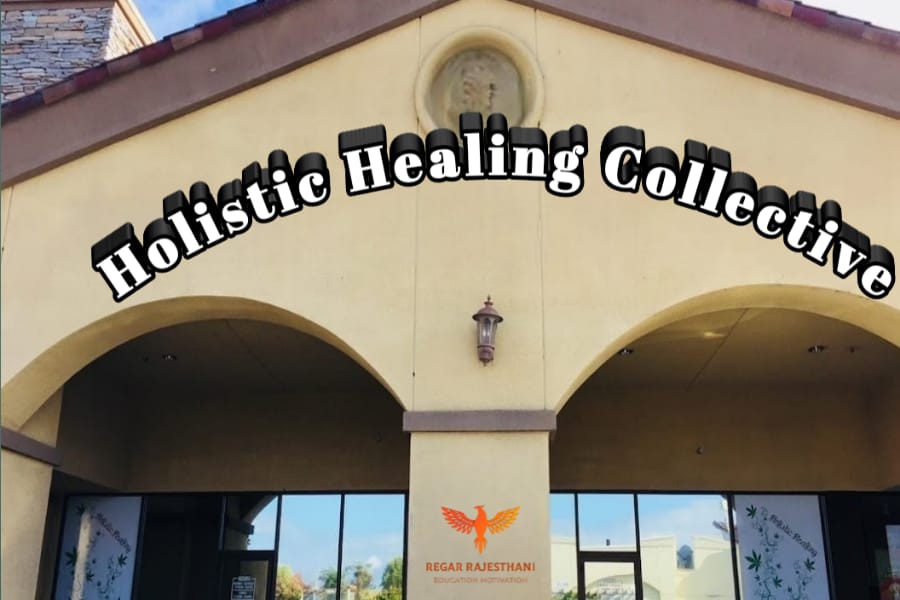Holistic Healing Collective: Embracing a Wholesome Path to Wellbeing
Introduction
Welcome to the world of Holistic Healing Collective, where the journey to wellness takes a whole new approach. It's not just about fixing isolated issues but understanding the intricate connection between our mind, body, and spirit. In this article, we will delve into the fascinating world of Holistic Healing, exploring its roots, principles, diverse practices, benefits, and how it complements conventional medicine. Together, let's start along this illuminating journey.
 |
| Holistic Healing Collective |
History of Holistic Healing
Ancient Origins
The concept of Holistic Healing is as old as humanity itself. Ancient civilizations from China to India and Greece understood that true health went beyond physical ailments. They embraced a balanced approach, focusing on emotional and spiritual well-being.
Modern Resurgence
In recent times, as people sought alternatives to traditional medicine, Holistic Healing experienced a revival. The ancient practices found new relevance in our fast-paced, stressful lives.
Key Principles of Holistic Healing
Mind-Body Connection
Holistic Healing recognizes the incredible bond between our minds and bodies. Our emotions can impact our physical health, and our physical well-being affects our mental state. Understanding this connection is vital for holistic practitioners.
Holistic Approach to Wellness
Unlike conventional medicine, which often treats specific symptoms, Holistic Healing takes a broader view. It considers all aspects of our lives, including lifestyle, environment, and social interactions, aiming for overall harmony.
Types of Holistic Healing Practices
Acupuncture
Originating in ancient China, acupuncture involves delicate needles strategically placed to stimulate the body's natural healing abilities.
Ayurveda
Ayurveda, India's traditional healing system, focuses on balance and incorporates herbal remedies, diet, and lifestyle changes.
Homeopathy
Homeopathy uses highly diluted natural substances to trigger the body's healing responses and restore balance.
Naturopathy
Naturopathy promotes natural healing through nutrition, herbal medicine, and other non-invasive treatments.
Reiki
Reiki, a Japanese practice, channels energy to promote relaxation and overall well-being.
Benefits of Holistic Healing
Treating the Root Cause
One of the most significant advantages of Holistic Healing is its emphasis on finding and addressing the root cause of health issues. This approach helps prevent recurring problems.
Personalized Approach
Each person is unique, and Holistic Healing respects that. The individualized approach ensures that treatments align with personal needs.
Minimizing Side Effects
Holistic therapies often have fewer side effects compared to conventional medications, making them appealing to many.
Enhancing Overall Wellbeing
By nurturing mind, body, and spirit, Holistic Healing goes beyond physical health, contributing to overall well-being and happiness.
Integrating Holistic Healing with Conventional Medicine
Complementary vs. Alternative Medicine
Holistic Healing can complement traditional medical treatments, offering a holistic support system for patients.
Collaboration between Practitioners
Collaboration between holistic practitioners and medical professionals ensures a more comprehensive and well-rounded approach to patient care.
Holistic Healing and Mental Health
Mindfulness and Meditation
Mindfulness and meditation are integral parts of Holistic Healing, promoting emotional well-being and stress reduction.
Holistic Therapy
Holistic therapists use various techniques, including cognitive-behavioural therapy, to address mental and emotional challenges.
The Growing Popularity of Holistic Healing
Shifting Perspectives on Health
Increasing awareness of the mind-body connection has fuelled the growing interest in Holistic Healing.
Celebrity Endorsements and Influences
Celebrities and public figures endorsing holistic practices have helped bring them into the mainstream.
Debunking Myths about Holistic Healing
Lack of Scientific Evidence
While some holistic practices have limited scientific backing, ongoing research is shedding light on their efficacy.
Potential Risks and Safety Concerns
As with any treatment, there may be risks, but qualified practitioners prioritize patient safety.
Embracing a Holistic Lifestyle
Nutrition and Diet
Adopting a balanced and nutritious diet is fundamental to embracing a holistic lifestyle.
Exercise and Physical Activity
Regular physical activity complements holistic healing, contributing to overall health and well-being.
Holistic Healing for Chronic Conditions
Pain Management
Holistic Healing offers effective pain management techniques, reducing the need for extensive medication.
Autoimmune Disorders
Holistic practices can support the immune system and help manage autoimmune conditions.
Stress and Anxiety
Stress-reduction techniques are integral to Holistic Healing and can significantly impact anxiety management.
The Role of Holistic Healing Practitioners
Training and Certifications
Holistic practitioners undergo rigorous training to ensure competence and ethical standards.
Ethical Considerations
Practitioners prioritize patient well-being and informed consent, adhering to ethical guidelines.
Addressing Holistic Healing Skepticism
Bridging the Gap with Science
Efforts are underway to combine holistic practices with scientific research, aiming for a better understanding.
Case Studies and Success Stories
Anecdotal evidence and success stories contribute to building confidence in holistic approaches.
Holistic Healing and Self-Care
Educating the Public on Health Self-Management
Holistic Healing empowers individuals to be active participants in their health journey.
Conclusion
Holistic Healing Collective encompasses a rich tapestry of ancient wisdom and modern understanding. We may unleash the potential for a more happy and balanced existence by embracing this comprehensive approach to well-being.
FAQs
Is Holistic Healing Collective suitable for everyone?
Yes, Holistic Healing can benefit people of all ages and backgrounds. However, it's essential to consult healthcare professionals before starting any new treatments.
Are holistic practices backed by scientific evidence?
While some holistic practices have limited scientific research, ongoing studies are shedding light on their effectiveness.
Can Holistic Healing be combined with conventional medical treatments?
Absolutely! Holistic Healing can complement conventional medicine, and collaboration between practitioners can enhance patient care.
Are there any potential risks associated with holistic therapies?
Like any form of treatment, there may be risks, but certified practitioners can minimize these risks.
How can I start embracing a holistic lifestyle?
You can begin by incorporating healthy nutrition, exercise, mindfulness, and exploring holistic therapies under the guidance of qualified practitioners.


.png)




0 Comments